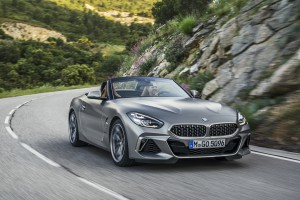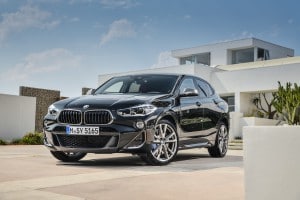Barely a month ago, BMW pulled the plug on two of its odder offerings, the 2-Series Active Tourer and stretched 2-Series Gran Tourer. But that move, it now seems, marked just the beginning of what may soon become a broader realignment by the Bavarian brand.
According to news reports, an array of familiar BMW products may soon vanish from showrooms, from a subcompact convertible to a full-size sedan. The move doesn’t surprise many observers.
BMW, like many of its high-line rivals, radically expanded its line-up during the past decade, filling in “white space,” as industry executives like to call it, wherever possible.
(BMW Drops $10M to Double Battery Capacity at SC Plant)
It’s not just BMW that could be looking to trim back, however. At a time when sales in the U.S. and China are declining and global demand is weakening, some industry analysts believe this could mark the start of a broader product rationalization, especially among luxury brands.
“Automakers are under a tremendous amount of pressure right now to fund both near and long-term investment programs,” said Stephanie Brinley, principal automotive analyst with IHS Markit. “So,” she added, “we’ll see everyone reevaluate” what’s in their line-up.
That said, while some current products could vanish, it may not mean a more limited array of offerings going forward. Some of those empty slots could be refilled by the new battery-powered products that all of the luxury brands are working on.
In its latest issue, Automobile magazine pointed to an assortment of BMW products that could follow the 2-Series Active and Gran Tourer models into oblivion. Others reportedly on the chopping block include the convertible version of the subcompact 2-Series, the standard-wheelbase 7-Series – with the future belonging to the long-wheelbase “L” model — the coupe and convertible 8-Series variants, and the next-generation Z4.
Latter model might come as something of a surprise considering BMW only launched the latest-generation Z4 roadster last year. But it did so reluctantly, moving forward only after finding a way to hold down costs by partnering with Toyota – which is using the underlying platform and a BMW inline-six engine – for its own revival of the Supra. Weak demand for the new BMW Z4 seems to rule out the ability to even make that approach work again.
(BMW Opens $1 billion Plant in Mexico)
The decision to dump so many passenger cars isn’t all that unusual in the current market, considering what is happening across the industry. Ford is dropping every sedan, coupe and hatchback from its U.S. line-up, but for the Mustang, for example.
BMW has certainly been shifting resources to crossovers – or what it calls “Sport Activity Vehicles” – to follow the industry trend. But even these models aren’t immune, and the Automobile report contends that the little X2 also will go away. (The automaker hasn’t responded yet to a request for comment on the magazine’s list.)
A rationalization among luxury brands is something that the experts have been talking about for some time. Consider that, not that many decades ago, BMW basically consisted of the 3-, 5- and 7-Series models, along with a Z roadster. The first sport-ute, the X5, only appeared in 1999.
Rivals have followed the same path. Mid-decade, Audi announced plans to launch about two dozen new models, updates and variants over the coming years. Mercedes-Benz could barely squeeze into its allotted news conference slot all the debuts at this year’s New York International Auto how – a list including the GLC Coupe, the GLS, the AMG A35 Sedan, the AMG CLA 35, the AMG GLC 63 and the EQC Edition 1886.
The latter model, Mercedes’ first long-range all-electric targeted at the U.S., is an indication of what’s to come. BMW has confirmed two more models for its battery-car brand, BMW i, and will add electrified versions of many other models by mid-decade. Audi has confirmed an assortment of battery-electric vehicles, starting with the new e-tron. And Porsche will follow the soon-to-launch Taycan battery sports car with at least two other all-electric models.
So, whether luxury showrooms really will see fewer product options in the coming years is unclear. It is just as likely that some old, gas and diesel models will vanish, their space taken by zero-emissions alternatives.



